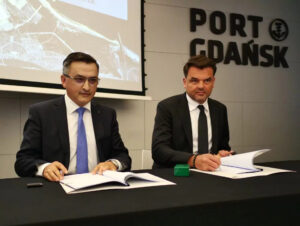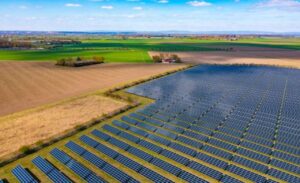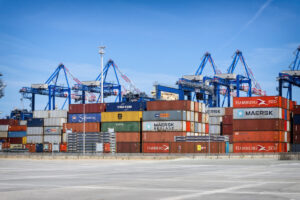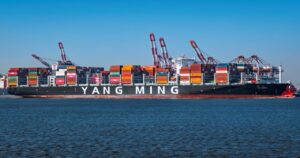Leading crane manufacturer Konecranes has said that it expects to see cellular hardware delivering 5G-LAN-enabled crane automation by in three to five years.
The company announced in April that it will deliver a 5G Standalone (SA) private wireless network at its Hyvinkää smart factory, delivered in partnership with Nokia and Edzcom.
In an interview with PTI, Juha Pankakoski, Executive VP of Technology at Konecranes, said the private network –– which will go online in Q2 2021 – is the latest step in a three-year partnership with the group.
“Standardisation work for the 5G SA networks has been completed and the utilisation of these networks can begin in Konecranes’ R&D networks and programs,” Pankakoski told PTI.
“We are now researching how 5G can power our R&D networks and programmes and how it can benefit both Konecranes and Konecranes’ customers.”
The state of 5G in cargo handling
Konecranes has been at the forefront of exploring innovative technologies in cargo handling equipment.
For 5G LAN-type services, which provides a 5G wireless Local Area Network with dedicated bandwidth and infrastructure for port operatives to access, Konecranes expects it to take three to four years before the industry sees its first commercial 5G hardware from the cellular industry “suitable for the wireless backbone” in automated container crane systems.
Whilst 5G solutions are becoming more prevalent in ports, the maritime industry is still in a fledgling state on expanding its operations to harness 5G – with many continuing to operate on main current wireless WiFi 802.11 and 4G LTE networks.
“Wireless technologies have been widely used in container terminals using Rubber-Tyred Gantry (RTG) cranes for communication that is not time-critical or control-critical,” he said.
“Recent developments in terminal automation and IoT along with the ever-increasing demand for productivity have put great performance pressure on wireless networks in container terminals.
“The main current wireless technologies have been struggling to keep up in the ports environment.”
Konecranes’ 5G LTE SA network, which is a Standalone Architecture anchored to a 5G core network specifically (contrasted with 5G NSA, which anchors 5G signaling to a 4G core network), will provide significant benefits to port stakeholders over the previous generations of 5G.
“It brings in ultra-low-latency, which better supports time-critical applications like those found in ports,” Pankakoski said.
However, he added that there is still much to be done in standardisation of 5G.
“We only deliver proven solutions to customers. That said, Konecranes is carefully tracking the development of 5G standardisation for the ports environment and studying possible implementations and the benefits they can bring to port customers,” Pankakoski noted.








